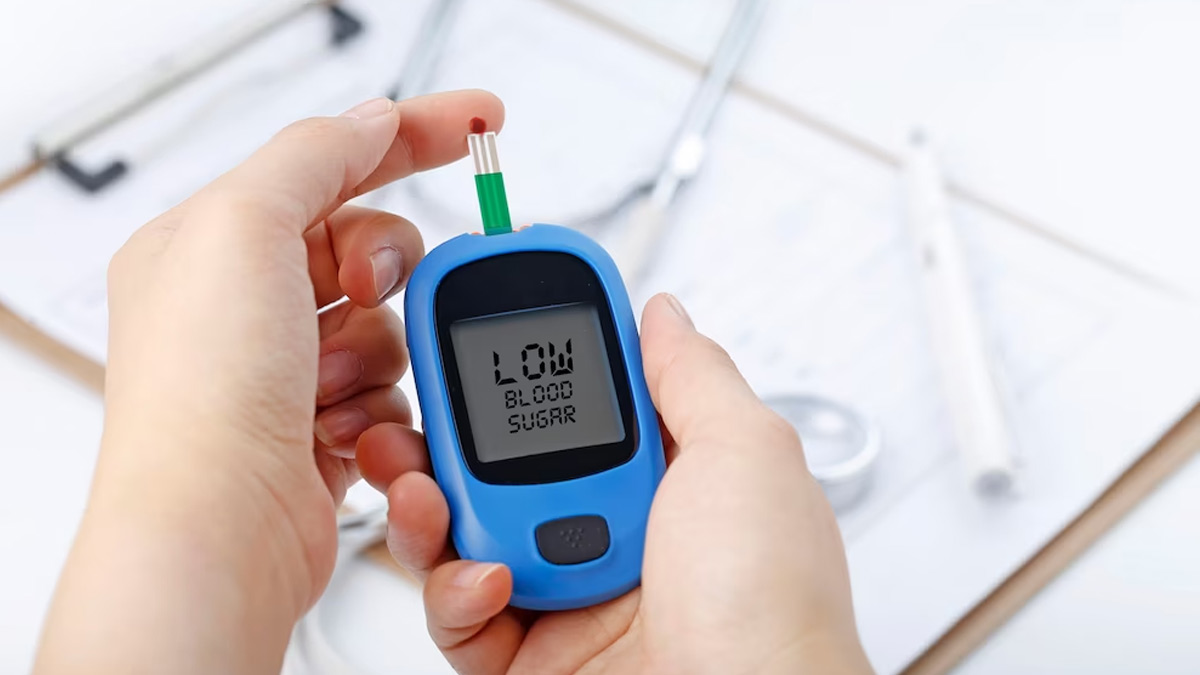
Blood sugar, or blood glucose, is a vital component of the human body's energy metabolism. It serves as the primary source of fuel for various bodily functions. Typically, low blood sugar levels, known as hypoglycemia, are associated with individuals diagnosed with diabetes. However, it's essential to recognize that non-diabetic individuals can also experience episodes of low blood sugar. Understanding the causes of hypoglycemia in non-diabetic individuals is crucial for proper diagnosis, treatment, and overall health management.
Table of Content:-
Causes Of Low Blood Sugar Levels In Non Diabetic Individuals
Here are six factors that can contribute to low blood sugar levels in non-diabetic people:
1. Meal Timing and Composition
One of the primary causes of low blood sugar in non-diabetic individuals is an imbalance in meal timing and composition. Skipping meals or prolonged periods between meals can lead to a drop in blood sugar levels. This is particularly common among individuals who follow strict dieting practices or have irregular eating patterns. Additionally, consuming meals that lack adequate carbohydrates or are low in overall caloric content can result in hypoglycemia.
2. Overactive Insulin Production
The pancreas releases insulin in response to increased blood sugar levels, allowing cells to absorb glucose from the bloodstream. However, certain medical conditions or hormonal imbalances can cause excessive insulin production, leading to hypoglycemia in non-diabetic individuals. Conditions such as insulinomas (insulin-secreting tumours) or certain types of endocrine disorders can result in abnormally high insulin levels, leading to a drop in blood sugar.

Also read: Is Liver Damage Reversible? Expert Weighs In
3. Reactive Hypoglycemia
Reactive hypoglycemia refers to a condition in which blood sugar levels drop significantly after a meal. In non-diabetic individuals, this can occur due to an exaggerated insulin response triggered by the consumption of high-carbohydrate meals. After the meal, the excessive insulin release leads to a rapid drop in blood sugar levels, causing symptoms like dizziness, weakness, and confusion.
4. Medications and Substances
Certain medications and substances can also contribute to low blood sugar levels in non-diabetic individuals. Alcohol, for instance, can inhibit the liver's ability to produce glucose, leading to hypoglycemia. Additionally, specific medications, such as those used to treat certain types of infections, may interfere with glucose regulation in the body. It is crucial to consult a healthcare professional to assess the potential side effects of medications or substances on blood sugar levels.

Also read: Is Liver Damage Reversible? Expert Weighs In
5. Physical Activity and Exercise
Engaging in physical activity and exercise is generally beneficial for overall health. However, intense or prolonged exercise without adequate carbohydrate intake can result in hypoglycemia, even in non-diabetic individuals. During exercise, the body requires a steady supply of glucose for energy. Without proper fueling before and during physical activity, blood sugar levels can drop, leading to symptoms of hypoglycemia.
6. Underlying Medical Conditions
Certain medical conditions can contribute to low blood sugar levels in non-diabetic individuals. Adrenal insufficiency, a condition in which the adrenal glands do not produce enough hormones, can cause a drop in blood sugar levels. Liver diseases, such as hepatitis or cirrhosis, can impair the liver's ability to store and release glucose, leading to hypoglycemia. Additionally, kidney disorders and certain inherited metabolic disorders can also affect blood sugar regulation.
Bottomline
While low blood sugar levels are commonly associated with diabetes, it is important to recognise that non-diabetic individuals can also experience episodes of hypoglycemia. Understanding the causes of low blood sugar in non-diabetic individuals is crucial for appropriate diagnosis and management.
Also watch this video
Read Next
Study Finds Mediterranean Diet Lowers Risk Of Type 2 Diabetes: Know What Our Expert Has To Say
How we keep this article up to date:
We work with experts and keep a close eye on the latest in health and wellness. Whenever there is a new research or helpful information, we update our articles with accurate and useful advice.
Current Version
